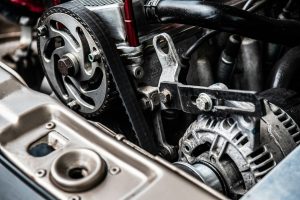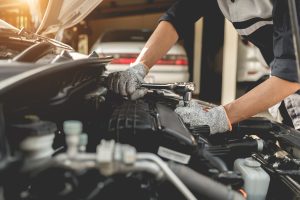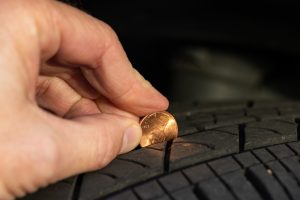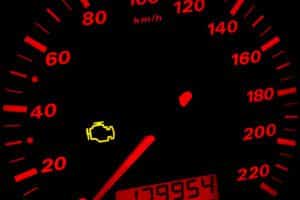As a vehicle owner, you know that regular maintenance is critical to ensuring your car’s reliability. However, with the countless auto shop services required at regular intervals by your car manufacturer’s manual, it can be overwhelming to remember it all. At George Automotive Services, we share some of the most common questions we get from our customers about staying on top of vehicle maintenance.
1. When Should I Replace My Car’s Battery?
Typically, the lifespan of a car battery falls within the range of three to five years. There are several factors that can have an impact on the lifespan of your battery. Climate, driving habits, maintenance, and everyday use all play a role in determining how long your battery will last.
There are a few telltale signs that may indicate your battery is starting to show its age. These indicators can help you stay ahead of any potential issues and ensure your vehicle remains in optimal condition. Here are some signs to watch out for:
- If you notice that the engine is cranking at a slower or more sluggish pace than usual, it could be a sign that the battery is losing its ability to deliver sufficient power.
- When you open the hood, you notice a rather unpleasant odor reminiscent of rotten eggs.
- The headlights on your vehicle appear to be dimmer than usual.
- There is some corrosion on the battery terminals.
2. What Fluids Should I Regularly Check?
Ensuring the optimal performance of your vehicle requires regular auto shop services, and one crucial aspect is the routine inspection of your car’s fluids.
Fluids are an integral part of your vehicle, impacting various aspects such as fuel efficiency and overall lifespan. Ensuring proper fluid levels is crucial to preventing breakdowns and upholding your car’s peak operating condition.
Depending on the quality of the products you use, the following schedules may be observed when changing your car’s fluids:
- Engine oil: every 3,000 to 15,000 miles
- Transmission fluid: every 30,000 to 60,000 miles
- Radiator coolant: every 30,000 miles or two years
- Brake fluid: every 30,000 miles or two years
3. Why Do Belts and Hoses Need to Be Replaced?
Belts and hoses play a crucial role in the overall performance and functionality of a vehicle’s engine. Belts drive engine components, including the alternator, water pump, power steering pump, and air conditioner compressor. Hoses transport liquids, gases, and vapors all throughout the vehicle.
Worn or broken belts and hoses may accelerate the deterioration of several other components of your vehicle. Regularly replacing your belts and hoses at the auto shop can significantly contribute to the longevity and reliability of your car.
Depending on the specific make and model of your vehicle, here are some general guidelines for replacing belts and hoses:
- V-belts: every 30,000 miles
- Serpentine belts: every 50,000 miles
- Timing belts: every 60,000 to 100,000 miles
- Hoses: every 4 years or 50,000 miles
Schedule Services at a Top-Rated Auto Shop in Danville, PA
George Automotive Services is the auto shop of choice for customers looking for full-service treatment when it comes to auto repair in Danville, PA. From general vehicle maintenance to diagnosis and repair of complex issues, we have a variety of services to meet your specific needs.
To learn more about a specific automotive concern you have about your vehicle, contact us today. Our friendly and knowledgeable team members and technicians are ready to help you!





